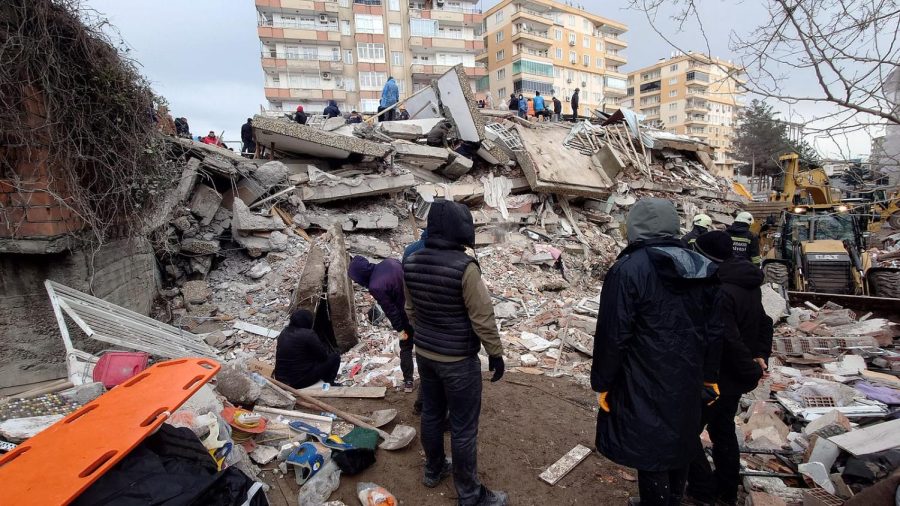Students address Syria, Turkey earthquakes
Photo courtesy of VOA / Wikimedia Commons
Following the recent earthquakes in Turkey, a building in Diyarbakır was in wreckage on Feb. 6.
February 25, 2023
With death tolls recently surpassing 50,000 in Syria and Turkey after the earthquakes earlier this month, the newly opened Salaam Middle East North African Cultural Center held one of its very first events on Feb. 23 to address it.
The event was organized by five RSOs: the Arab Student Association, the Muslim Student Association, Students for Justice in Palestine, Bar None and Underrepresented Muslim and Minority Advocates.
“(The) purpose of this event is to hold (a) space for students that this tragedy has impacted,” said Rifqa Falaneh, president of Bar None. “It’s unfortunate we haven’t received support or a simple statement from the UIUC administration. We’re hoping this event will give … political context of what’s happening in Syria and how there are many vulnerable communities who haven’t been receiving aid.”
According to Tuna Tuncer, a Turkish Student Association board member, TSA was unable to take part in organizing this event. However, they were happy to attend and be a part of the event discussions.
“We just heard about (the cultural center),” Tuncer said. “We didn’t really have connections with the Arabian Student Association … They reached out to us about the event they are doing about the earthquake in Turkey and Syria. So, we wanted to come and, of course, join.”
Get The Daily Illini in your inbox!
TSA has organized other events that helped raise awareness and money for the victims of the earthquakes.
The event started with a short presentation which addressed the following: why it happened, the U.S. response, what we can do to help, lack of media coverage and the recovery process.
After the short presentation, the tightly filled cultural center erupted in a lively discussion. Turkish, Lebanese and people of many other ethnicities chimed into the discussion by adding and correcting information and voicing their opinions, thoughts and feelings regarding the disasters in the Middle East.
Many expressed concern in the absence of coverage on the bombs Israel dropped on Syria during the aftermath of the earthquakes.
They thought it was important to discuss the bias in — not only media coverage — but in the reactions of their peers and even the University.
“I hope this event makes people feel that they aren’t ever alone when serious tragedies like this happen,” Falaneh said. “Even though mainstream news outlets or the administration won’t capture how we’re feeling or extending support, we’ll be here to create our own spaces to support each other through community.”







